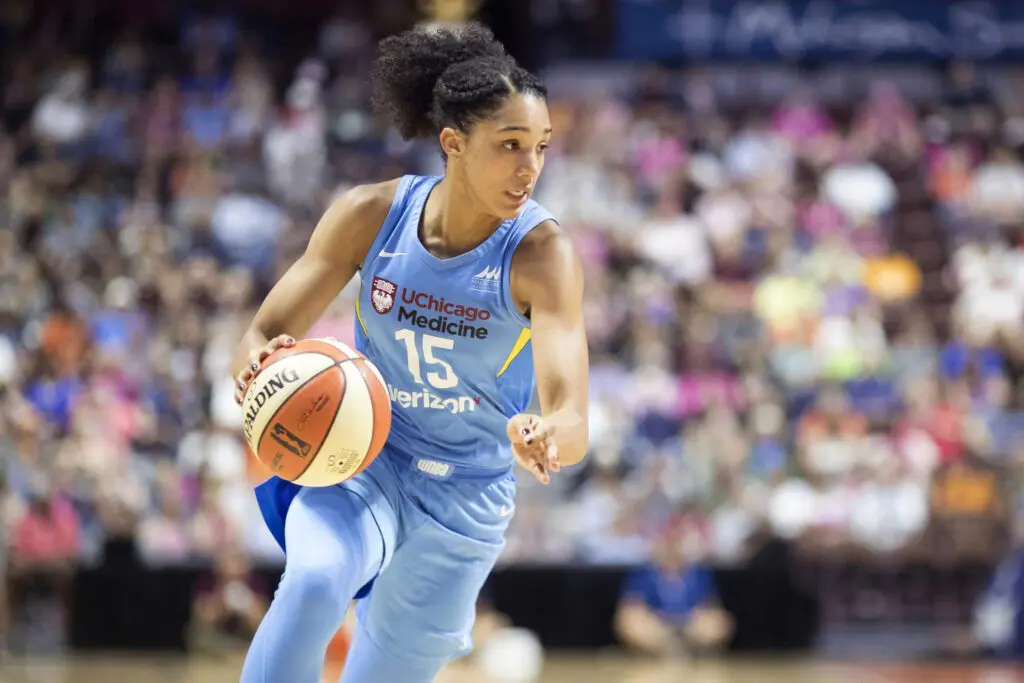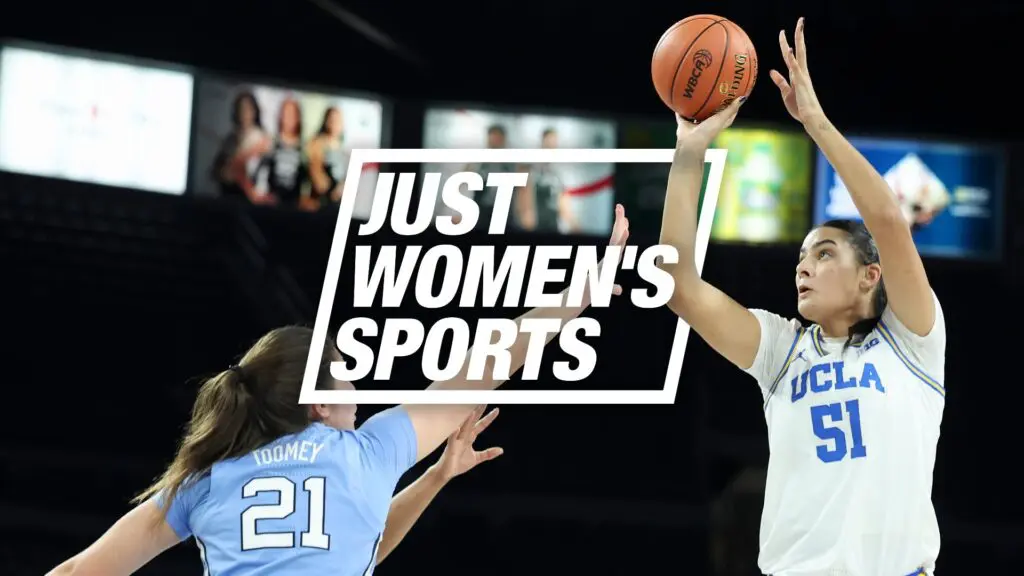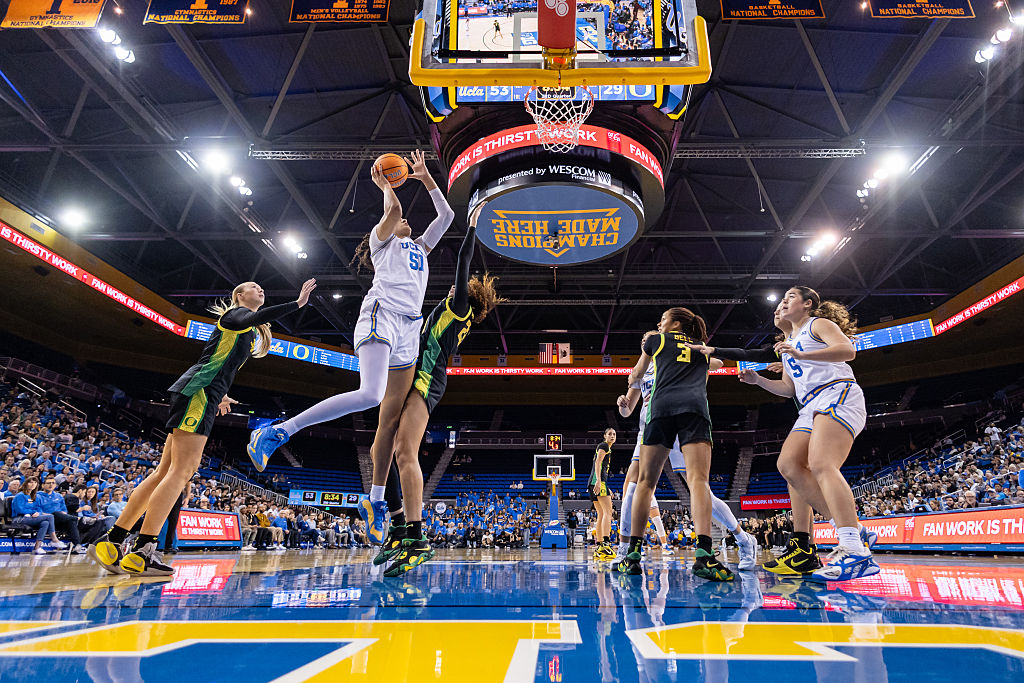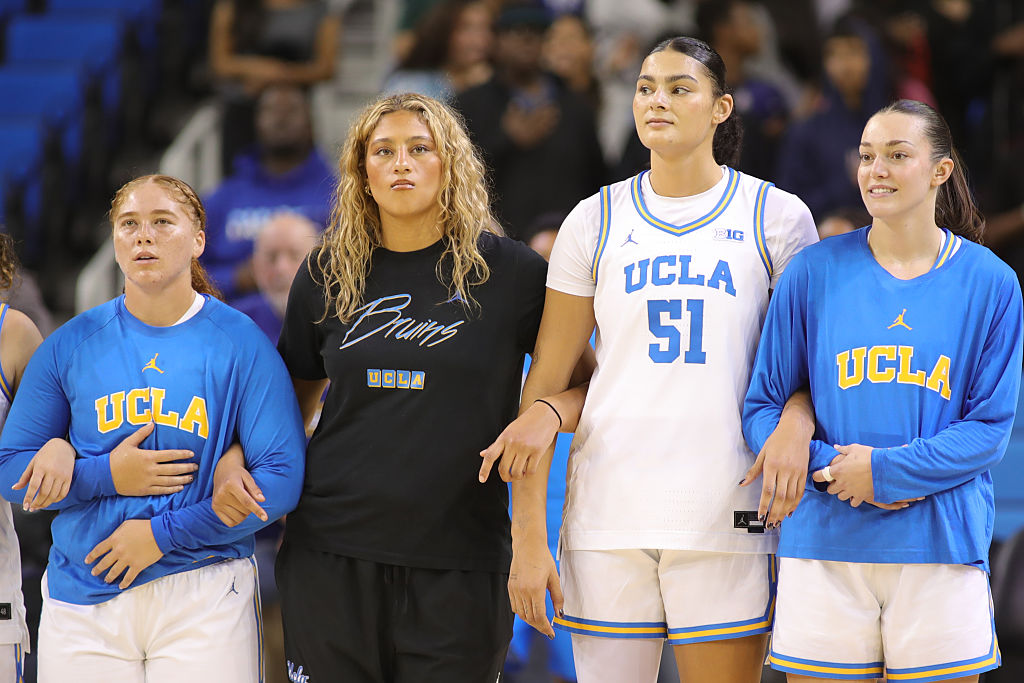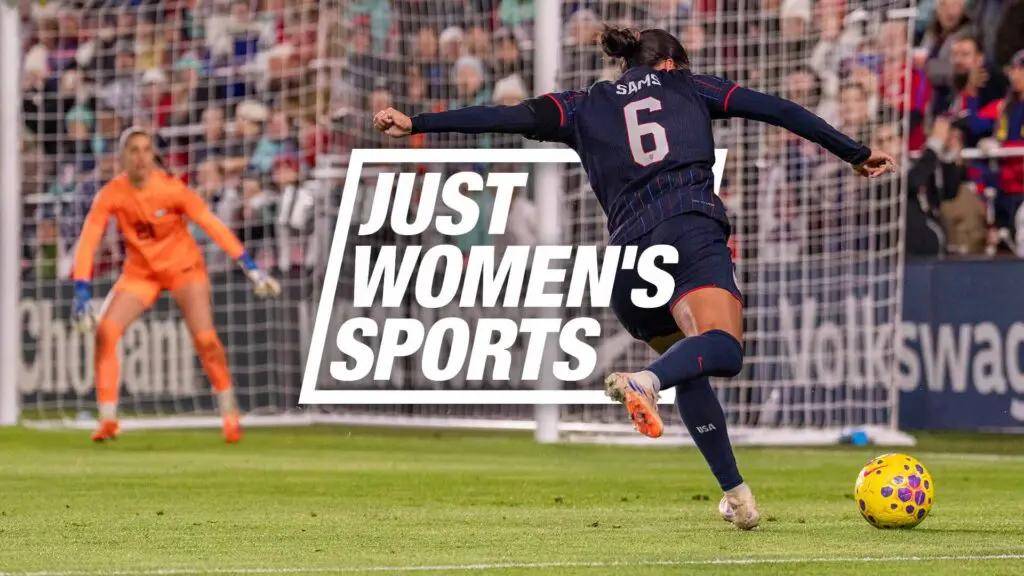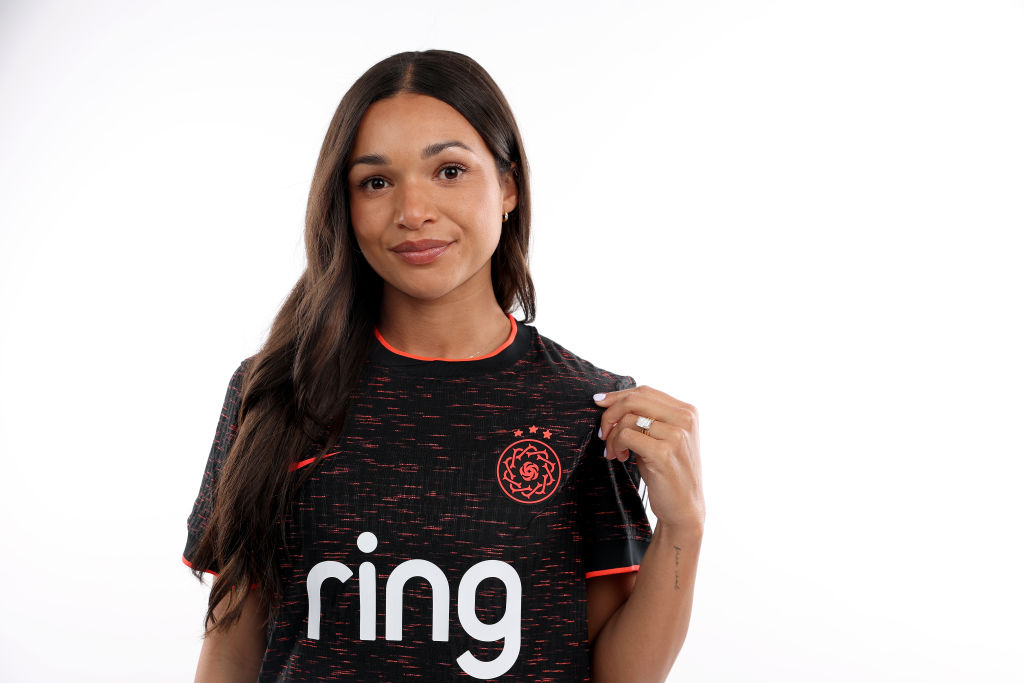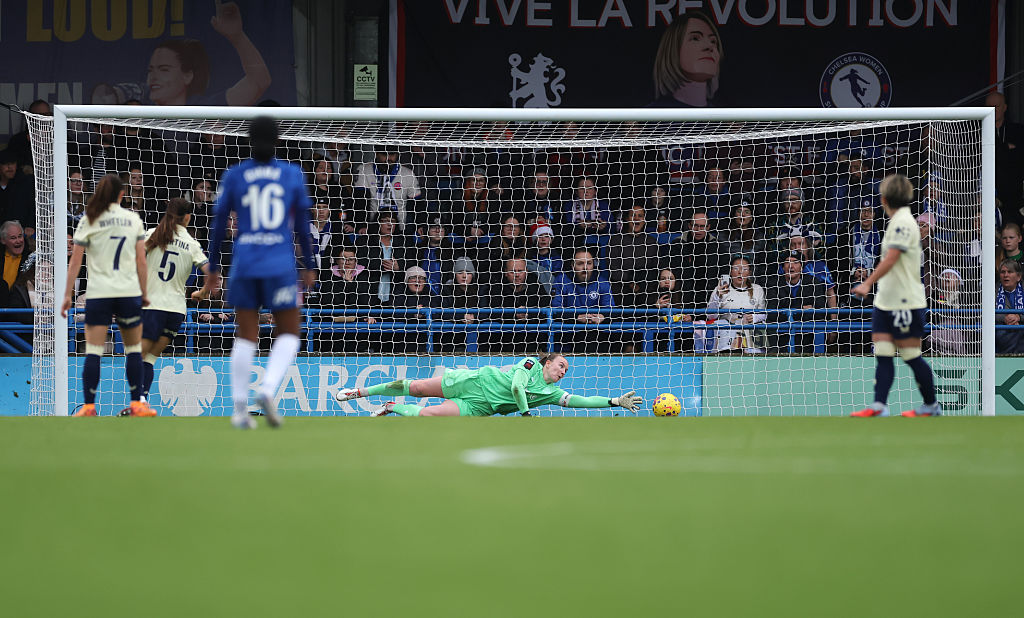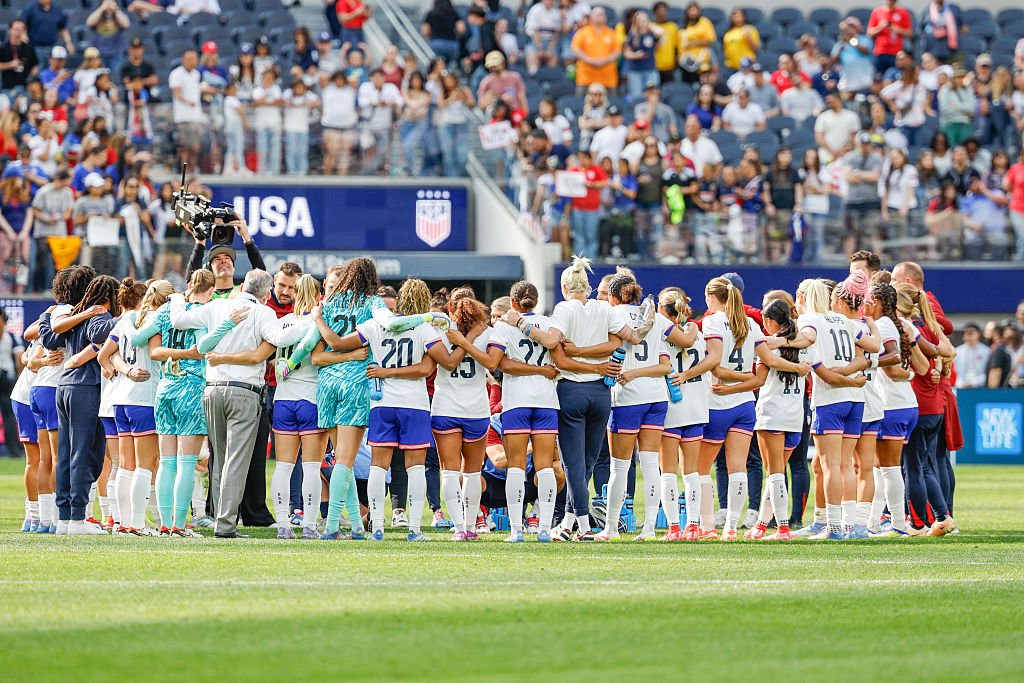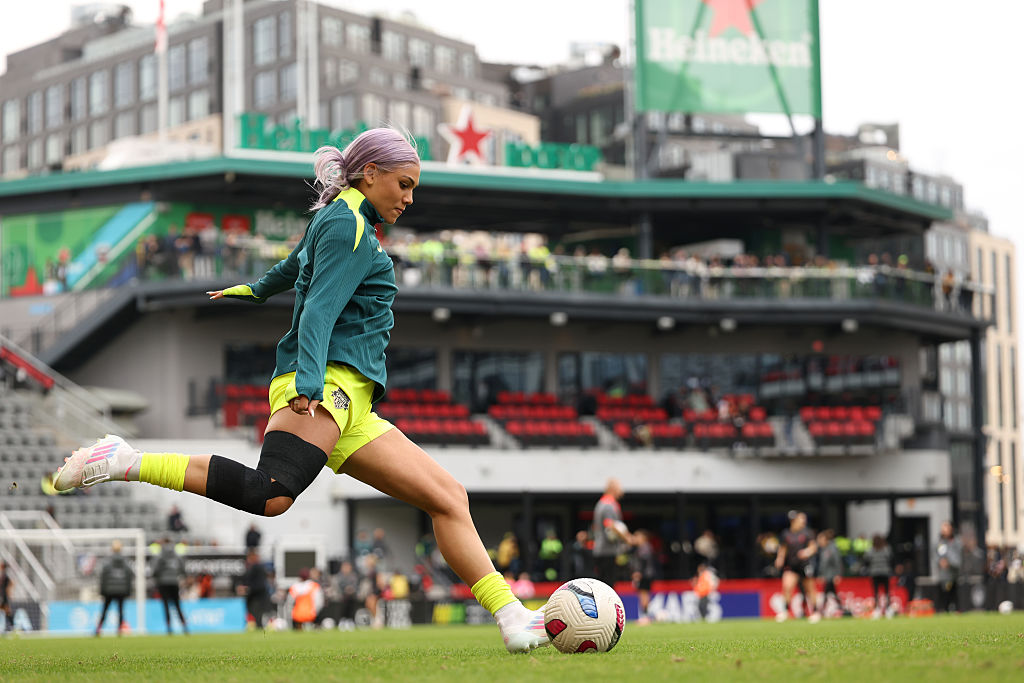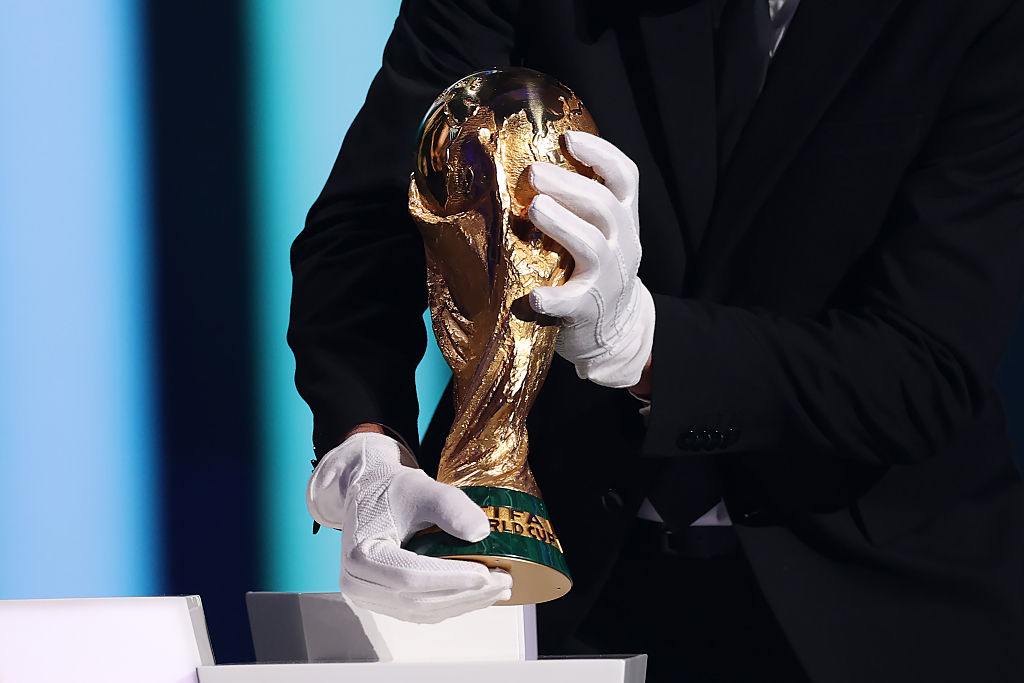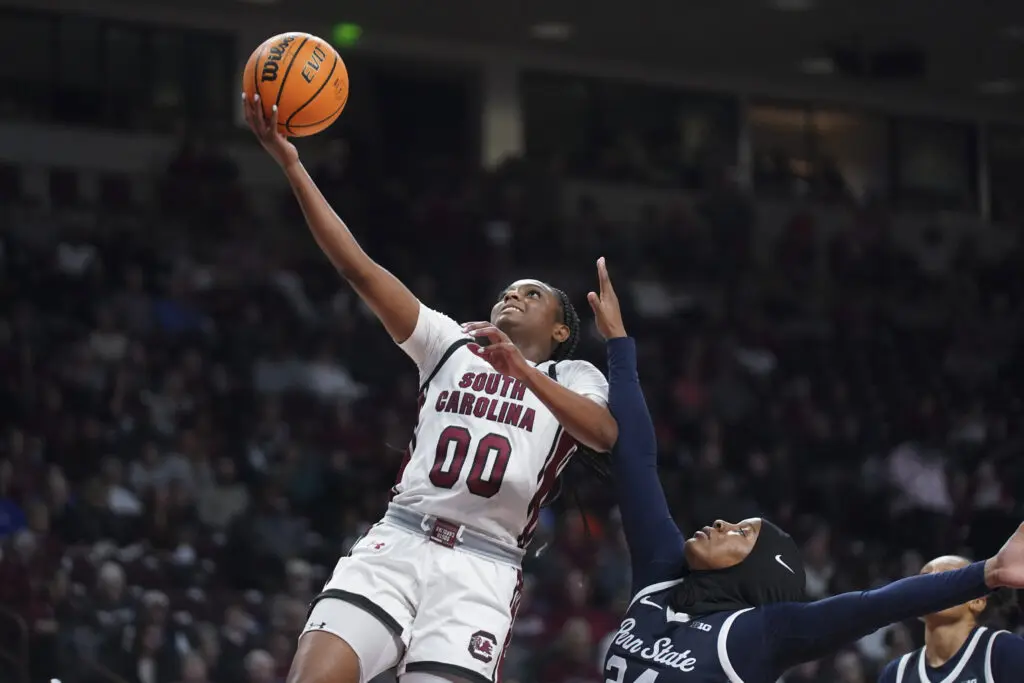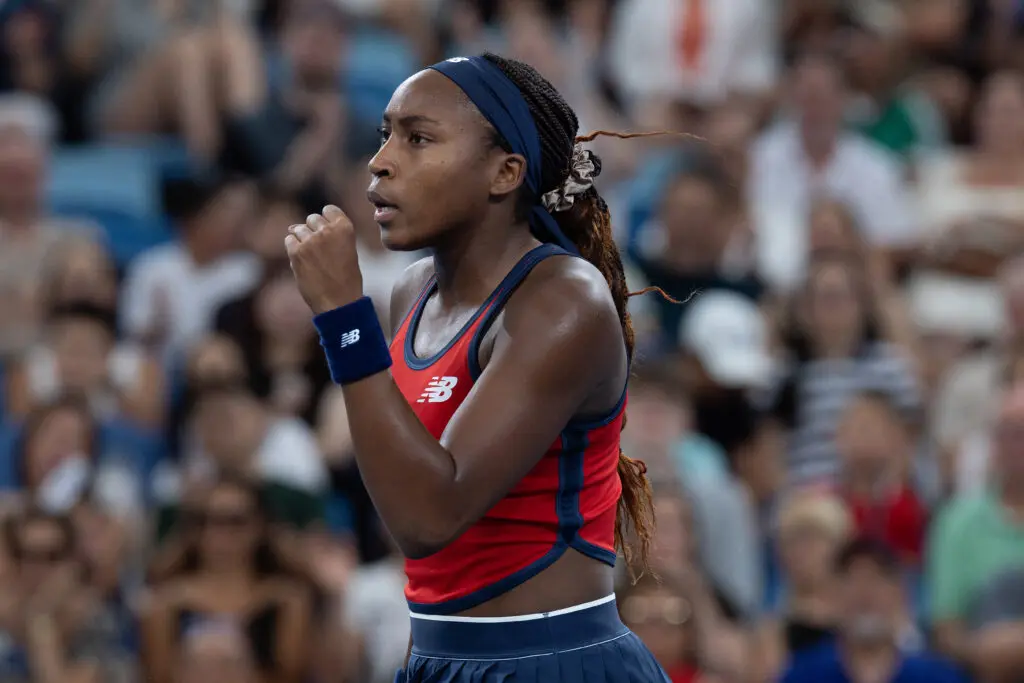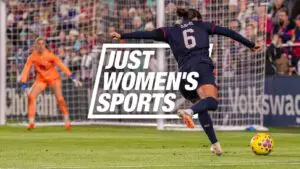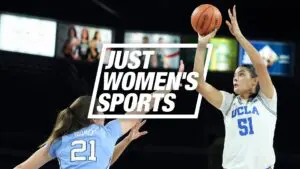Gabby Williams is an American-French basketball player who plays for both the Chicago Sky of the WNBA and the Basket Lattes Montpellier Agglomération club in France, whose season was recently suspended due to the coronavirus. Williams, who remains in France under a government-mandated lockdown, won two NCAA championships while playing at UConn. She spoke to Just Women’s Sports about life in quarantine, the financial realities of playing overseas, and what makes UConn so damn good.
What is your situation in France right now? How is it living under quarantine?
I am living in a town called Palavas-les-Flots, right near the beach. It’s just me and my cat. One of my teammates actually lives in the same neighborhood as me so before the official lockdown, I would run down to her place and throw rocks at the window. They recently closed the beach, which is really tough because that was the only thing keeping me sane. I was going to the beach close to every day to get fresh air and to exercise.
At first the quarantine wasn’t too bad, but everyday it’s getting harder and more strict. We were just doing what the States are doing now, a recommended self-quarantine with restaurants and bars closed. Then, as of March 16th, they mandated a government lockdown where if you leave your house, you’re going to get stopped by the police and they’re going to ask for your ID and you have to have a paper explaining why you’re out. And just today they announced that we can’t go outside for exercise anymore. France’s president announced that this lockdown is going to be for at least 15 days, but I think it’s going to be longer. This is going to get worse before it gets better.
How has the virus impacted your ability to train?
It sucks. I haven’t touched a basketball in so long, and I’m someone who tries to get up 500 shots a day. But now I can’t even practice. I just love to be in the gym working on my game, so I miss it a lot. And any basketball player will tell you, if you go two weeks without shooting, you’re not going to feel right when you come back.
Before restrictions, I was doing beach workouts and spending some time healing my body. Then the beaches closed, so I was just running. Now we can’t even go outside, so I just do high intensity workouts inside. I’m someone who likes to work out until I feel totally exhausted, and that is just hard to do with limited resources. It’s an adjustment, but ultimately, I know everyone’s going through a tough time and this is beyond just us. Everyone’s making sacrifices.
What went into your decision to play overseas in the first place?
Honestly, it’s the money. I hate to say it, but financially, if I have to choose, it’s a no brainer. I play overseas. I read a recent Breanna Stewart interview where they asked her why she was going to Russia to play, and she said the real question is, “Why would I come back to the WNBA? I get $900,000 from the Russian team I play for.”
Almost every WNBA player has to play in other leagues. We have to or we can’t support ourselves for an entire year.
And what made you choose to play in France specifically?
I am a French-American dual citizen, so I have some family in Paris, but most of my family is back in the US. I chose to play in Europe because having a European passport makes me more valuable. Each team is allowed two Americans, but with a European passport, a team can have an extra American. I was playing in Italy last year, and it was not a good experience at all. The club I played for there was very unprofessional as far as paying me on time, and the team actually ended up folding in the middle of the season, so I lost a lot of money. France is probably the only country in Europe where we get paid by the government, so our money is guaranteed and protected. That was a huge reason for me to come to France. I didn’t want to go through another situation like in Italy.
How would you describe your WNBA career so far? What has been the biggest challenge?
I’ve definitely learned a lot, but it is really tough. I was spoiled coming from UConn, where our team had our own plane and everything. You go to the WNBA and you’re right back in economy class, and the competition is at a whole other level. There is a very big learning curve. It’s the pace, the physicality, the intelligence of the players. Everyone is good. Everyone was one of the best college players in the country their year. There’s only 12 teams, so it’s hard to earn a spot and even harder to keep it. I mean, Megan Gustafson was the 2019 AP College Player of the Year, and she got cut from the WNBA before her rookie season. That’s how competitive it is.
What are your thoughts on the WNBA’s recent collective-bargaining agreement? How has it impacted you as a player?
I was actually a part of the process as a rep for my team. Each team had two who attended meetings and discussion with the union. It was crazy to see it all unfold. All of us representatives met to discuss amongst ourselves what things were most important to us. And then we just had to hope that the league was going to meet us at least halfway. Raising the max was the most important part of the entire agreement, because ultimately that will keep a lot of players from going overseas to play. It’s finally comparable to the kind of money that players make overseas.
For me, individually, I am still on a rookie contract for the WNBA, so the CBA doesn’t impact me too much right now, but hopefully it will in the future. It’s ultimately going to make the league more competitive and a lot more interesting. I mean, even what happened with all the trades and free agency — a lot of that was because of the CBA. Teams just have more money now.
What’s the biggest difference between playing for UConn and playing professionally?
At UConn, I had to buy into a program. And now I’m playing for a different professional team every six months. You have to constantly re-learn how your team plays together. And I hate to say it, but things are also a bit more individually focused in the professional basketball world versus at UConn. At UConn, you breathe, eat and sleep UConn basketball. And now it’s like some of the time I am with Chicago, and at other times I am in another league. The best thing I can do is just make sure that I’m at the top of my game individually and then just try to be the missing piece that each team needs.
What makes UConn so good, and what made you a successful player while you were there?
You just have to buy in. I mean, that’s why UConn has been so good for so long. Our coaches know how to recruit the right kids, and they’re going to test and push each of us. And if you can’t handle it then you leave or you just never get the playing time. But if you buy in, then they’re going to give you the tools for success. Everyone always says, UConn wins because they get the best players. But if there’s 24 All-Americans that come out of high school and three go to UConn, what happens to the other 21? It’s not the players, it’s the coaches and the system. You just have to buy into what they tell you. And it’s not easy. It’s mentally and physically the hardest thing I’ve ever had to do. But that’s why they push you to pass your limit and that’s why they get the best out of all these players.
You won two national championships as a Freshman and Sophomore and were part of a historic UConn team in 2016. What was that like?
It’s crazy because it’s something you dream about, especially my sophomore year, when we went undefeated. That felt like something out of a movie. You never think something like that is going to happen to you. And I was also so happy for our seniors that year. It was so cool to witness Brianna Stewart in her prime and be a part of it all. We made history, and that’s always special, especially when you really love the team and the girls you’re with.
What happened during your junior and senior seasons?
We fell short in the semifinals. It was crazy, though, because when we lost a lot of our significant players, the media and fans expected nothing from us. I think they ranked us fifth or something, which is a huge deal for UConn basketball. No one expected us to be good. And then we just kept winning. Even though we didn’t win the title those years, it still felt really special because it was me, Naphessa Collier, Katie Lou Samuelson, and Kia Nurse. We were the core four of the team who all stepped up to prove UConn was still great.
